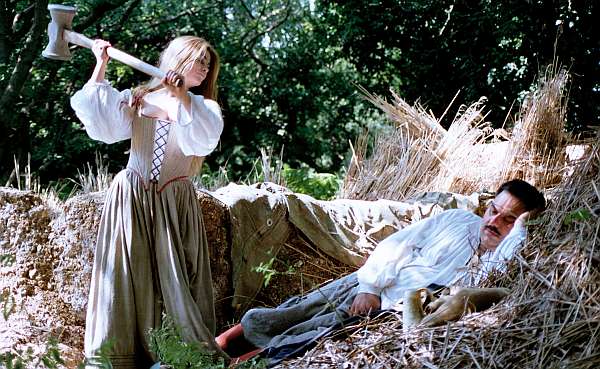 ★★★½
★★★½
“Hammer time!”
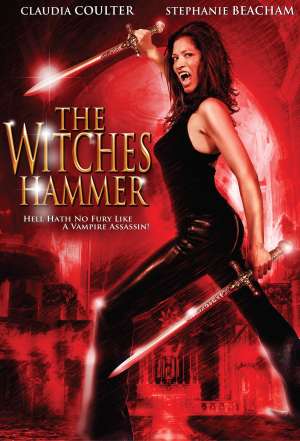 If never quite escaping its low-budget roots, or producing enough compensations or fresh imagination to make you forgive them, this is a robust enough vehicle and a decent entry in a sadly-small sub-genre: British girls-with-guns. It’s perhaps closest to the 1998 movie, Razor Blade Smile – which I really should get round to covering here, except it was pretty freakin’ awful. Similarly, Hammer involves a vampire assassin, though you can also lob in a shedload of other influences, conscious or otherwise, from Buffy, through Nikita to Bloody Mallory. If originality is not the movie’s strong suit, it is at least stealing from some of the best action heroines.
If never quite escaping its low-budget roots, or producing enough compensations or fresh imagination to make you forgive them, this is a robust enough vehicle and a decent entry in a sadly-small sub-genre: British girls-with-guns. It’s perhaps closest to the 1998 movie, Razor Blade Smile – which I really should get round to covering here, except it was pretty freakin’ awful. Similarly, Hammer involves a vampire assassin, though you can also lob in a shedload of other influences, conscious or otherwise, from Buffy, through Nikita to Bloody Mallory. If originality is not the movie’s strong suit, it is at least stealing from some of the best action heroines.
Rebecca (Coulter) is resurrected from the dead by a secret (government?) program, Project 571. They turn her into a vampire, giving her enhanced speed, reflexes, strength, agility, etc. – with the downside that she’s explode into flames if she goes out in daylight. After one assignment, she discovers her handlers have been killed, but is contact by Madeline (Beacham), who runs the imaginatively-named Project 572. Together with sidekick Edward (Sidgwick), she is sent to retrieve a mystical tome a the necessary first-step to slay the head vampire, Hugo (Dover), who… Ok, I’m somewhat hazy on the specifics, but he’s the bad guy, alright? Rebecca has to martially-art her way through an ever more dangerous series of witches, vampires and self-replicating ninjas (I assure you, it’ll make sense when you see the movie, to the point where you’ll probably go, “Oh! Self-replicating ninjas! That’s what Jim meant…”) until the final encounter with what a certain action heroine would certainly call The Big Bad.
Pluses? It’s actually shot on 35mm – while HD video has become the staple of low-budget cinema, it still doesn’t have quite the same feel as film, and the atmosphere here benefits as a result. Stephanie Beacham is magnificent, possessing a calm assurance that is marvellous to watch: she breezes through her scenes like a galleon at full sail, befitting her status as a genre icon. And the little and large duo of vampire, Oscar and Charlotte, are entirely endearing – their moments of comic relief work very nicely. [The idea of a midget vampire has been used before, as anyone who saw the truly appalling Ankle Biters will know.] The digital effects are nicely done too, with the vampires collapsing into a shower of glowing sparks, in a way that would also gladden the heart of Sunnydale’s favourite slayer.
 Minuses? There’s a certain unevenness of tone which doesn’t quite work. At various moments, the film wants to be exciting, poignant, self-aware, slapsticky and dramatic: these individual moments work with varying degrees of success, and the combination, with the frequent gear-changes which result, occasionally seem clunky. Camp also needs to be played completely straight to work, and that isn’t always the case here. Hayes is over-fond of flashbacks: there are at least four here, and that’s probably three more than are necessary, with the only truly significant back-story belonging to Kitanya, the Russian witch who supposedly wrote the Malleus Maleficarum, the magic book which everyone seeks. As noted above, Eaves doesn’t really bring much new to the show: if you can find a review that doesn’t mention, say, Blade, your Google-fu is stronger than mine, and it is a very obvious comparison.
Minuses? There’s a certain unevenness of tone which doesn’t quite work. At various moments, the film wants to be exciting, poignant, self-aware, slapsticky and dramatic: these individual moments work with varying degrees of success, and the combination, with the frequent gear-changes which result, occasionally seem clunky. Camp also needs to be played completely straight to work, and that isn’t always the case here. Hayes is over-fond of flashbacks: there are at least four here, and that’s probably three more than are necessary, with the only truly significant back-story belonging to Kitanya, the Russian witch who supposedly wrote the Malleus Maleficarum, the magic book which everyone seeks. As noted above, Eaves doesn’t really bring much new to the show: if you can find a review that doesn’t mention, say, Blade, your Google-fu is stronger than mine, and it is a very obvious comparison.
Coulter is acceptable in the central role – she reminded me most of Yancy Butler from Witchblade. She just doesn’t have quite the right attitude for a supposedly ruthless killer: Olivia Bonamy, in Bloody Mallory, brought the appropriate level in such things, such as her gloves with FUCK EVIL on them. Coulter is a shrinking wallflower in comparison, and this is shown in a sequence where she’s rescued from a morgue by one of her Project 571 colleagues. Rebecca clings on to the sheet with an obvious death-grip, rather than showing any skin, almost keeping it up to her neck. Hard to imagine a stone-cold assassin caring too much about nudity in front of another woman, and a less coy approach would perhaps be more appropriate.
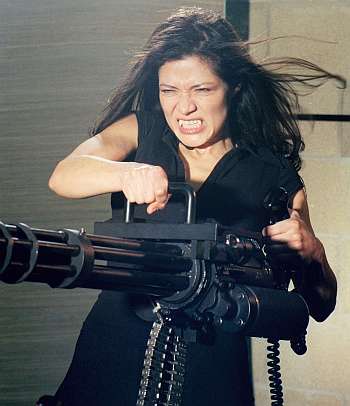 The action is solid, if generally short of spectacular. There doesn’t seem to be much doubling of Coulter – or if there is, it’s not obvious. She get to use a selection of weapons, which adds a nice sense of variety; from swords through staffs to the F-sized rail-gun pictured top left (even if the cartridges being ejected were rather too obviously digital), Kris Tanaka was the action choreographer, and also appeared as one of the vampires near the end; it’s clear he knows his stuff. I’m not quite so sure Eaves does, as the editing of the sequences – for which he is also responsible – seems to be choppy and occasionally difficult to follow, though not to the level of MTV-style editing, the bane of my life as a viewer.
The action is solid, if generally short of spectacular. There doesn’t seem to be much doubling of Coulter – or if there is, it’s not obvious. She get to use a selection of weapons, which adds a nice sense of variety; from swords through staffs to the F-sized rail-gun pictured top left (even if the cartridges being ejected were rather too obviously digital), Kris Tanaka was the action choreographer, and also appeared as one of the vampires near the end; it’s clear he knows his stuff. I’m not quite so sure Eaves does, as the editing of the sequences – for which he is also responsible – seems to be choppy and occasionally difficult to follow, though not to the level of MTV-style editing, the bane of my life as a viewer.
This was probably better than I expected it to be. The low-budget is not often obvious, and there are enough moments of charm to tide you over the less successful elements and make up for a certain lack of genuine freshness. Finally, despite the director’s protestations to the contrary, I’m still fairly sure there’s an apostrope missing from the title, which would only be grammatically correct in a context such as “The witches hammer at the door.” Eaves claims the apostrophe-less version is an accurate translation of Malleus Maleficarum, let’s just say, Wikipedia begs to differ. It probably doesn’t matter as much as I find it does, but while we can expect apostrophically-chalenged titles from Hollywood (I’m looking at you, Two Weeks Notice), good grammar costs nothing. ;-)
Dir: James Eaves
Star: Claudia Coulter, Jon Sidgwick, Stephanie Beacham, Tom Dover





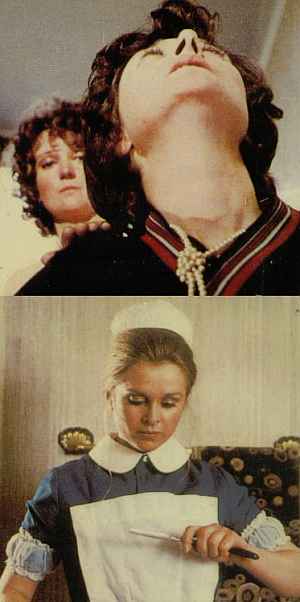 An intriguing premise is ground into the dirt, with execution which could hardly be more tedious. An agency of hit-women are run by an antiques dealer (Reed), taking on clients from all walks of life, who can use the skill-set of her assassinettes. Flaky business partner? No problem. Trapped in an unloving marriage? Will that be cash or charge? It’s imbued with a curious degree of social commentary, as the scenes are intercut with newspaper front-pages, intended to convey the impression that 1976 society is on the edge of collapsing into predatory carnage, anarchy and chaos. Which, in the post-9/11 world, really seems more quaintly ironic than remotely threatening.
An intriguing premise is ground into the dirt, with execution which could hardly be more tedious. An agency of hit-women are run by an antiques dealer (Reed), taking on clients from all walks of life, who can use the skill-set of her assassinettes. Flaky business partner? No problem. Trapped in an unloving marriage? Will that be cash or charge? It’s imbued with a curious degree of social commentary, as the scenes are intercut with newspaper front-pages, intended to convey the impression that 1976 society is on the edge of collapsing into predatory carnage, anarchy and chaos. Which, in the post-9/11 world, really seems more quaintly ironic than remotely threatening.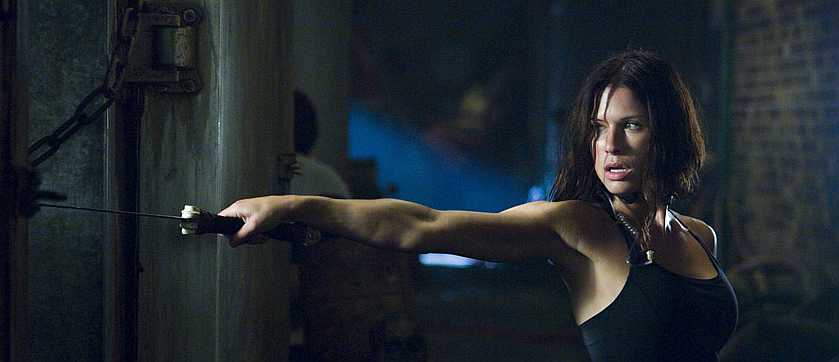 ★★★½
★★★½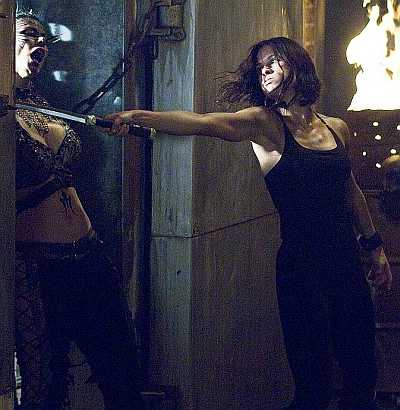 In the near future (next week, actually at the time of going to press), Glasgow falls prey to the Reaper virus, which is exactly what it sounds like. The government in London deal with the problem by building a 30-foot wall along the border and sealing off Scotland – which is basically the approach taken by the government to problems in Scotland since, oh, about 1707. [Hello, born there!] 30 years later, however, the virus breaks out in London, and all of a sudden, the information that people are still alive in Scotland, suggesting they found a cure, is now of more than academic interest. To get the cure, they send Eden (Mitra) up North, to find Kane (McDowell, appearing in about two scenes, then taking his salary and leaving), who might just have the solution. However, things do not go as planned, needless to say, not least because Glasgow is inhabited by nothing but psychopathic thugs with poor dress sense and bad skin, stuck in the past. So, no change, then. [Hello,
In the near future (next week, actually at the time of going to press), Glasgow falls prey to the Reaper virus, which is exactly what it sounds like. The government in London deal with the problem by building a 30-foot wall along the border and sealing off Scotland – which is basically the approach taken by the government to problems in Scotland since, oh, about 1707. [Hello, born there!] 30 years later, however, the virus breaks out in London, and all of a sudden, the information that people are still alive in Scotland, suggesting they found a cure, is now of more than academic interest. To get the cure, they send Eden (Mitra) up North, to find Kane (McDowell, appearing in about two scenes, then taking his salary and leaving), who might just have the solution. However, things do not go as planned, needless to say, not least because Glasgow is inhabited by nothing but psychopathic thugs with poor dress sense and bad skin, stuck in the past. So, no change, then. [Hello, 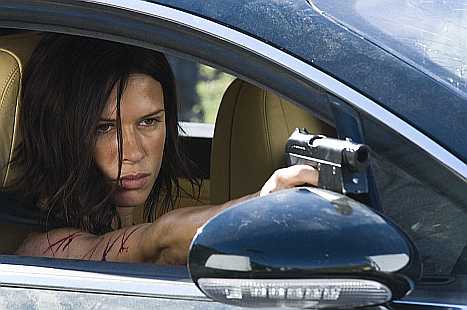 It all builds to a monumental car-chase, though you have to suspend disbelief there, as apparently Bentley cars will start right out of the crate, even if they’ve been sitting there for thirty years. You can also plough them through an exploding bus, amongst a litany of other torments, and they’ll come out the other side with barely a scratch. Again, if you’re going to ground your film in the ‘real world’, admittedly a questionable concept given the plot synopsis above (and I haven’t even got to the more outrageous elements yet!), then mis-steps such as these should be avoided. They’ll just give the more moronic end of the critical fraternity – paging Jeff Otto – blunt objects with which to whack your film about the head, as they ride off on their high horse. They only bothered me slightly, since I was already in full-on disbelief suspension, and since the resulting car-chase was cheerfully destructive, I’m inclined to give it some slack.
It all builds to a monumental car-chase, though you have to suspend disbelief there, as apparently Bentley cars will start right out of the crate, even if they’ve been sitting there for thirty years. You can also plough them through an exploding bus, amongst a litany of other torments, and they’ll come out the other side with barely a scratch. Again, if you’re going to ground your film in the ‘real world’, admittedly a questionable concept given the plot synopsis above (and I haven’t even got to the more outrageous elements yet!), then mis-steps such as these should be avoided. They’ll just give the more moronic end of the critical fraternity – paging Jeff Otto – blunt objects with which to whack your film about the head, as they ride off on their high horse. They only bothered me slightly, since I was already in full-on disbelief suspension, and since the resulting car-chase was cheerfully destructive, I’m inclined to give it some slack.
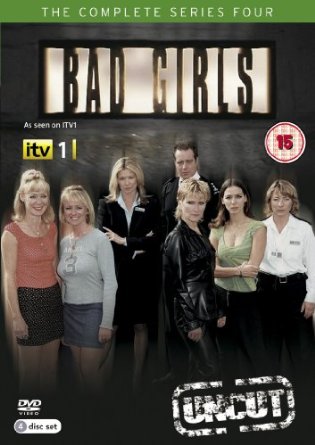
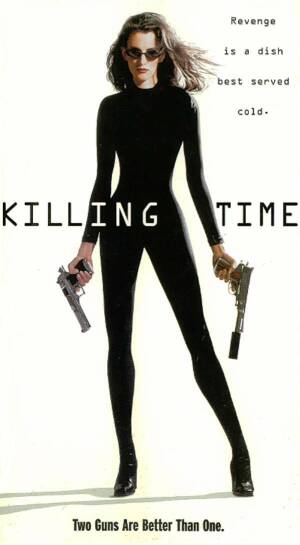 We Brits don’t do girls-with-guns movies: too busy drinking tea and arranging matchsticks, I imagine. This is a rare exception, and works not badly, combining a striking ‘Italian’ hitwoman in Maria (Torgan), with the bone-dry sarcasm of Guy Ritchie – at least, before he started making movies starring his missus, Madonna. Maria is brought in by Newcastle cop Bryant (Fairbrass) after the local crime lord (Leach) leaves a fellow policeman nailed to Bryant’s front door. Only, Bryant can’t afford to pay her, so blackmails some local thugs, led by Charlie (Thirkeld) to kill her after she’s done the job. Needless to say, things don’t quite go as planned, and the dead bodies start to accumulate, in a most non-British way.
We Brits don’t do girls-with-guns movies: too busy drinking tea and arranging matchsticks, I imagine. This is a rare exception, and works not badly, combining a striking ‘Italian’ hitwoman in Maria (Torgan), with the bone-dry sarcasm of Guy Ritchie – at least, before he started making movies starring his missus, Madonna. Maria is brought in by Newcastle cop Bryant (Fairbrass) after the local crime lord (Leach) leaves a fellow policeman nailed to Bryant’s front door. Only, Bryant can’t afford to pay her, so blackmails some local thugs, led by Charlie (Thirkeld) to kill her after she’s done the job. Needless to say, things don’t quite go as planned, and the dead bodies start to accumulate, in a most non-British way.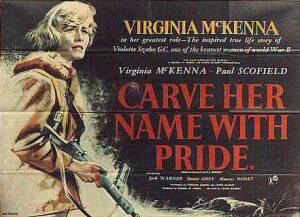 This is based on a true story, so we know from the start this is going to end in front of a firing-squad – at least until the Hollywood remake, with a happy ending. Given this, the film still tries to crank up the tension, but as written, Violette Szabo comes off as beyond saintly, without flaws or imperfections. Almost as irritating, she is shown as being mostly inspired by the death of her husband, rather than any innate patriotism (Charlotte Gray similarly portrayed a female SOE agent as passive-reactive). Having said that, the movie generally stays true to the facts, though the poem supposedly written by her husband was actually, in far less romantic reality, by her SOE codemaster – interestingly, the SOE’s name is not mentioned at all. Much of the end is fictionalised; details of her interrogation, for example, are obviously unavailable.
This is based on a true story, so we know from the start this is going to end in front of a firing-squad – at least until the Hollywood remake, with a happy ending. Given this, the film still tries to crank up the tension, but as written, Violette Szabo comes off as beyond saintly, without flaws or imperfections. Almost as irritating, she is shown as being mostly inspired by the death of her husband, rather than any innate patriotism (Charlotte Gray similarly portrayed a female SOE agent as passive-reactive). Having said that, the movie generally stays true to the facts, though the poem supposedly written by her husband was actually, in far less romantic reality, by her SOE codemaster – interestingly, the SOE’s name is not mentioned at all. Much of the end is fictionalised; details of her interrogation, for example, are obviously unavailable.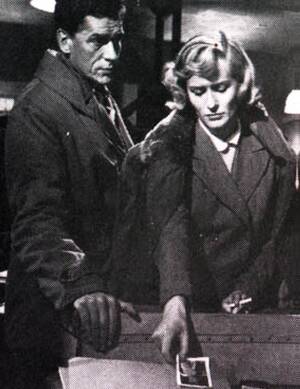 The film does take
The film does take 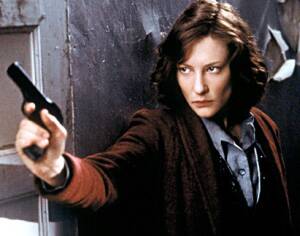 Love story or wartime thriller? The script here tries to have it both ways, and as a result of this uncertainty, the undeniable potential in the idea is unfulfilled. Gray (Blanchett) is dropped into Vichy France during World War II as an agent, but her bosses don’t realise she is more interested in finding her pilot lover (Penry-Jones), who’s been shot down nearby. While conflict between love, and love of country, would have been interesting, the former is almost ignored, then disposed of in a thoroughly unconvincing manner. Not that this diversion is uninteresting; you get a real sense of the terrors of war, with people being “vanished” in seconds, and the tension of living your life on a knife-edge behind enemy lines.
Love story or wartime thriller? The script here tries to have it both ways, and as a result of this uncertainty, the undeniable potential in the idea is unfulfilled. Gray (Blanchett) is dropped into Vichy France during World War II as an agent, but her bosses don’t realise she is more interested in finding her pilot lover (Penry-Jones), who’s been shot down nearby. While conflict between love, and love of country, would have been interesting, the former is almost ignored, then disposed of in a thoroughly unconvincing manner. Not that this diversion is uninteresting; you get a real sense of the terrors of war, with people being “vanished” in seconds, and the tension of living your life on a knife-edge behind enemy lines.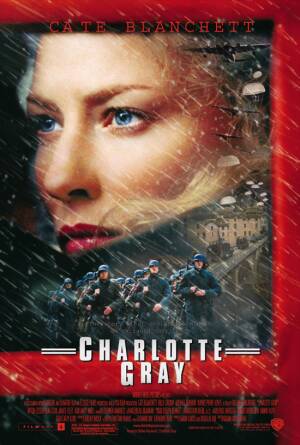 Mostly, the film is concerned with Charlotte’s protection of two Jewish children, and involvement in a resistance cell led by Julien (Crudup). They’re communists, so the British don’t really like them, but they’re convenient – and can be abandoned when necessary, the revelation of which provides the film with its most chilling moment. Blanchett has the right steely resolve for the role, and the cast is generally excellent; particular credit to Gambon (magnificently surly as Julien’s father), Ron Cook as Gray’s contact, and Anton Lesser, an oily collaborator who had us screaming “Die! Die!” at the TV set.
Mostly, the film is concerned with Charlotte’s protection of two Jewish children, and involvement in a resistance cell led by Julien (Crudup). They’re communists, so the British don’t really like them, but they’re convenient – and can be abandoned when necessary, the revelation of which provides the film with its most chilling moment. Blanchett has the right steely resolve for the role, and the cast is generally excellent; particular credit to Gambon (magnificently surly as Julien’s father), Ron Cook as Gray’s contact, and Anton Lesser, an oily collaborator who had us screaming “Die! Die!” at the TV set. The third series hit the ground running, Michelle Dockley taking evil warder Jim Fenner hostage, after stabbing him in the stomach with a broken bottle (to loud cheers here), and Nikki Wade breaking
The third series hit the ground running, Michelle Dockley taking evil warder Jim Fenner hostage, after stabbing him in the stomach with a broken bottle (to loud cheers here), and Nikki Wade breaking 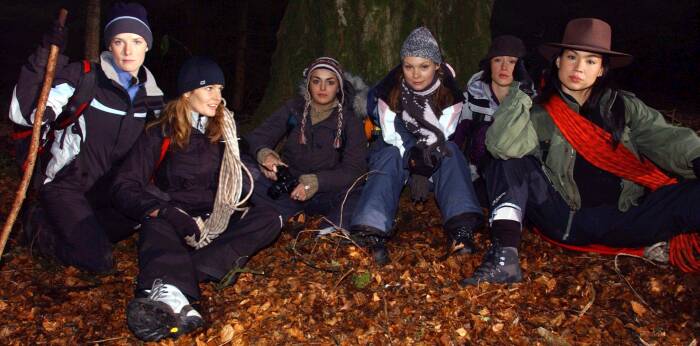
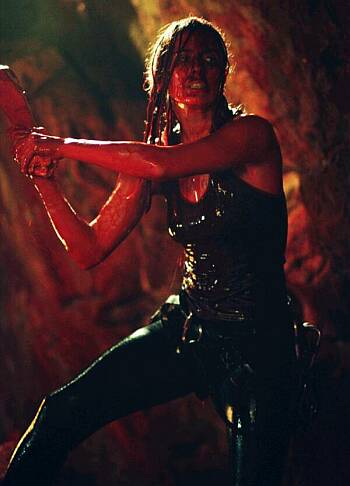 Simplicity is under-rated, especially when it comes to genre films. The simplest horror movies often work the best, because they prey on widely-held fears: monsters (Jaws), getting lost (The Blair Witch Project) or claustrophobia (Below). And now, we get The Descent, which combines all three into one ball of nerves, pitting six female cave-explorers against
Simplicity is under-rated, especially when it comes to genre films. The simplest horror movies often work the best, because they prey on widely-held fears: monsters (Jaws), getting lost (The Blair Witch Project) or claustrophobia (Below). And now, we get The Descent, which combines all three into one ball of nerves, pitting six female cave-explorers against  The focus of the film is Juno and Sarah, with the rest of the cast largely reduced to cannon-fodder – though not badly-drawn cannon-fodder, I must admit. Juno is a near-Amazon, while Sarah has to become one, simply in order to survive, and that’s about the extent of the character development here. Demureness, beauty, the ability to bear babies, and all other typical “feminine” traits, are of absolutely no use whatsoever. The ability to drive your pick-axe, repeatedly, into the head of pissed-off Gollum wannabes, on the other hand… Yeah, that
The focus of the film is Juno and Sarah, with the rest of the cast largely reduced to cannon-fodder – though not badly-drawn cannon-fodder, I must admit. Juno is a near-Amazon, while Sarah has to become one, simply in order to survive, and that’s about the extent of the character development here. Demureness, beauty, the ability to bear babies, and all other typical “feminine” traits, are of absolutely no use whatsoever. The ability to drive your pick-axe, repeatedly, into the head of pissed-off Gollum wannabes, on the other hand… Yeah, that 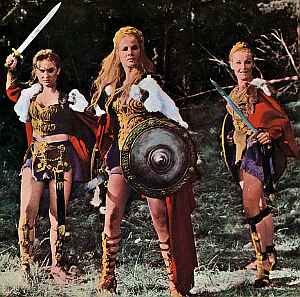 Hammer were best known for their horror movies, but tried virtually every genre save Westerns at one time or another. This Roman “epic” is loosely based on the life of Boadicea, who led a revolt against the Romans in the first century A.D. They get the name of her tribe right (the Iceni), and some basic facts, such as her suicide after capture, but change her name to Salina and sprinkle in some wild inaccuracies. Despite the title, there are no actual Vikings to be found, and we also get the Druids worshipping Zeus, a Greek god!
Hammer were best known for their horror movies, but tried virtually every genre save Westerns at one time or another. This Roman “epic” is loosely based on the life of Boadicea, who led a revolt against the Romans in the first century A.D. They get the name of her tribe right (the Iceni), and some basic facts, such as her suicide after capture, but change her name to Salina and sprinkle in some wild inaccuracies. Despite the title, there are no actual Vikings to be found, and we also get the Druids worshipping Zeus, a Greek god!